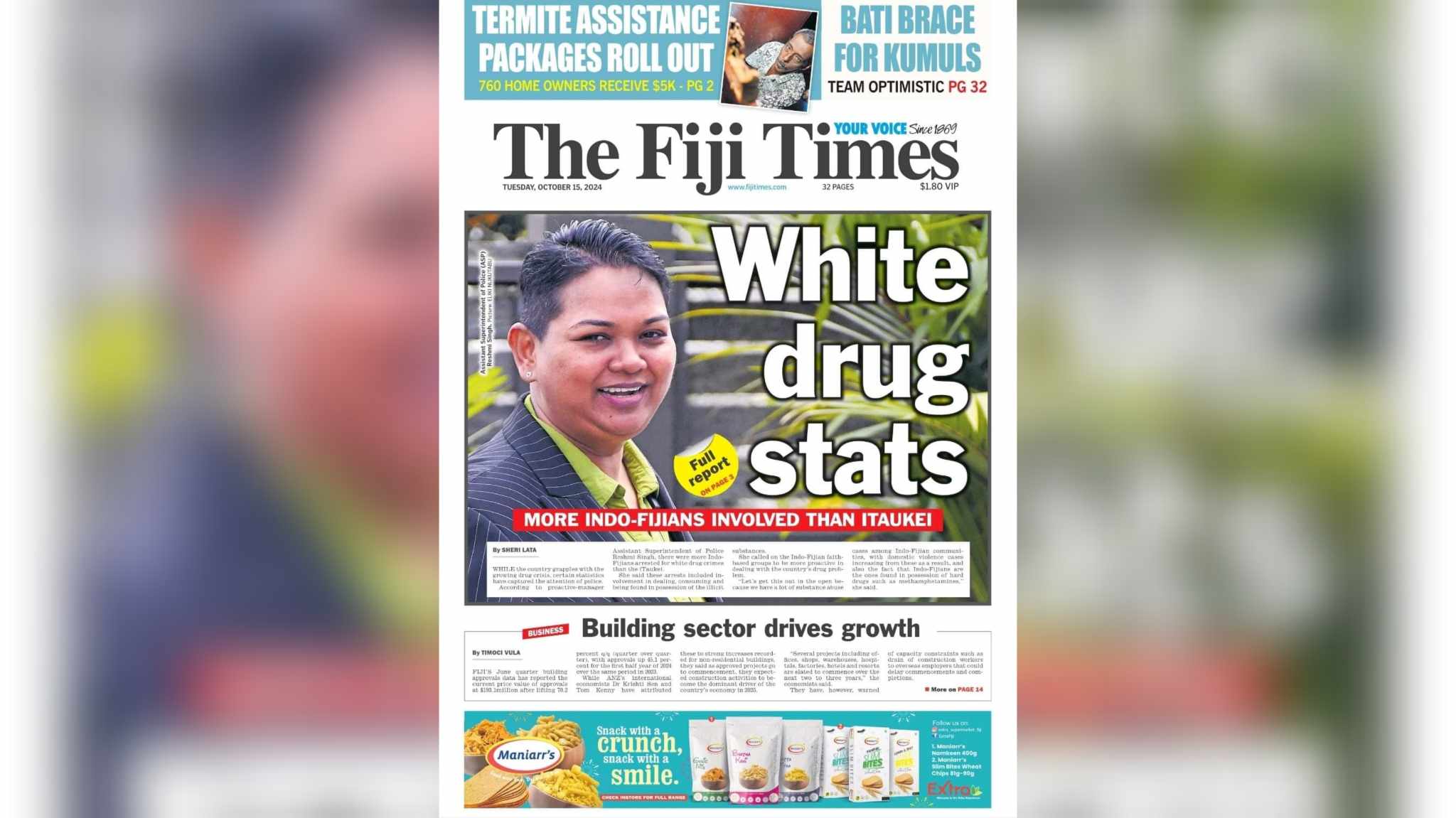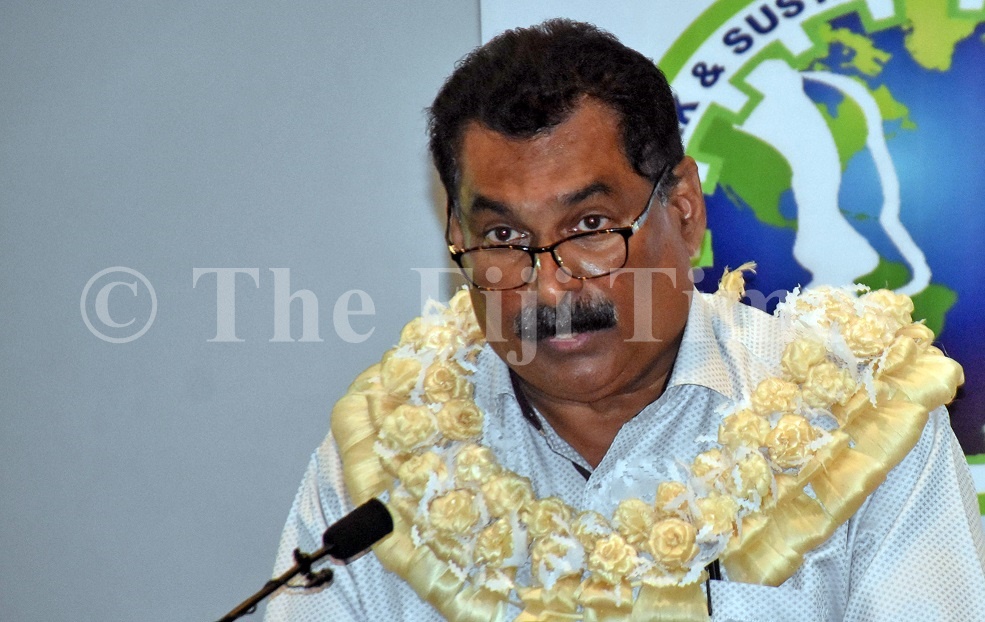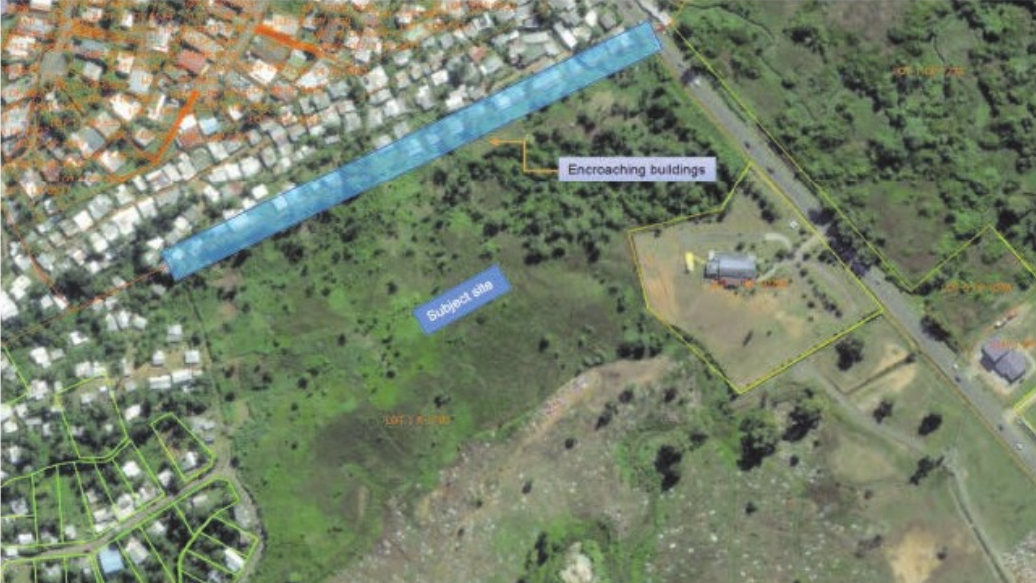Bula
While the country grapples with the growing drug crisis, certain statistics have captured the attention of police. According to proactive-manager Assistant Superintendent Reshmi Singh, there were more Indo-Fijians arrested for white drug crimes than the iTaukei. That’s the lead on page 1 of The Fiji Times for Tuesday, October 15.
We also have a story about Fiji’s June quarter building approvals data has reported the current price value of approvals at $193.1million after lifting 70.2 per cent q/q (quarter over quarter), with approvals up 45.1 per cent for the first half year of 2024 over the same period in 2023.
Synopsis
Target group
It is good to know that the Fiji Police Force has identified a target group in the war against drugs.
It says it faces an uphill battle in its attempts to address this target group over the country’s drug problem.
According to the Force’s manager-proactive ASP Reshmi Singh, from January to July this year, they recorded the largest number – 718 people – between the ages of 18-35 years charged with consumption, possession and other drug-related offences. There were 20 juveniles and 396 people, she said, charged from the 36-55 years of age.
Now that’s pretty serious.
What we know now is that this age group, according to police stats, has been missing from community engagement programs as well as from places of worship!
“Unfortunately, this group is the one in the nightclubs but missing from places of worship or community gatherings. So, our challenge is how and where to involve them.”
ASP Singh spoke about families wanting their children to go through counselling or to attend awareness programs, but because they may be in the wrong group, they were rebellious or may have left home.
She spoke about setbacks, and the scenarios that exist on the home front.
If children were nurtured well by their parents or guardians from a young age, she insisted, they would not end up with the wrong crowd.
“It is very difficult for this group to listen to anyone, including their parents,” ASP Singh said.
We know which demographic presents a major challenge.
We now know that many young adults find it difficult to listen to authority, including their parents.
This means there is a need for strategies that will focus on communication and nurturing trust between young adults and their families, as well as between youth and community leaders.
While the Force faces an uphill battle in addressing drug-related issues among young adults, specifically their target group, we believe the path forward lies in understanding the complexities of their experiences.
The fact that this demographic, according to the Force, is notably absent from community engagement initiatives and places of worship, does complicate efforts to reach them.
So let’s open up communication, enhance community engagement, and let’s create supportive environments, hopefully where we can work towards breaking the cycle of drug use and empowering our youth.
In all these scenarios above, there has to be engagement at all levels of society.
This drug war isn’t going away any time soon. Not if we aren’t keen to focus attention on it.






